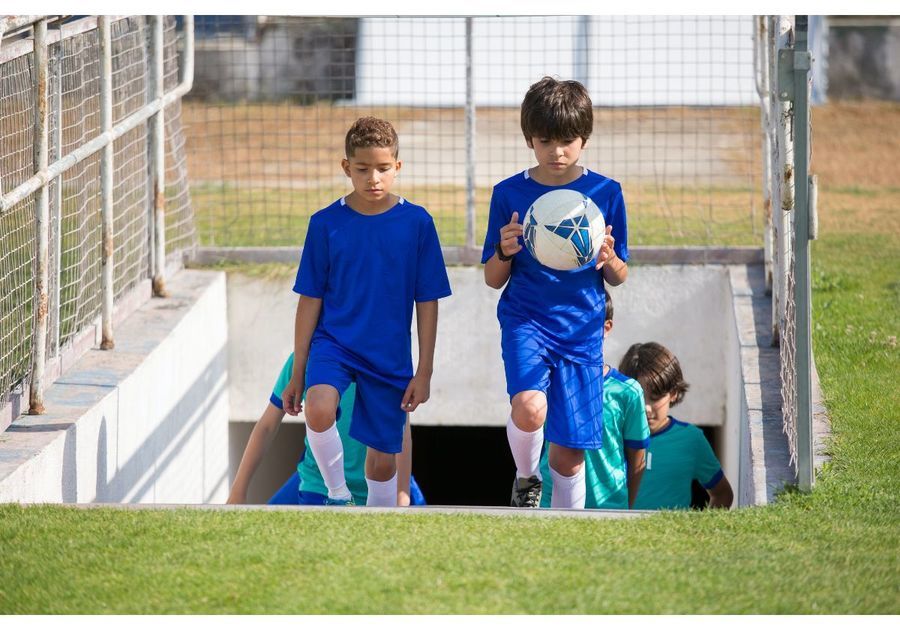Some of us are the type of parents who say, "Maybe when they are bigger" or "Oh no, not my kid, that is too rough!" Playing sports in school offers a wide range of benefits for children, encompassing physical, mental, social, and even emotional aspects of their development. Here are some ways in which playing sports can help children:
- Physical Health: Participation in sports promotes physical activity, helping children develop stronger muscles and bones, improve cardiovascular fitness, and maintain a healthy weight. Regular physical activity also reduces the risk of obesity, diabetes, and other health issues.
- Motor Skills: Sports require coordination, balance, and agility, which contribute to the development of fine and gross motor skills. Children learn to control their bodies more effectively and enhance their overall physical dexterity.
- Teamwork and Cooperation: Team sports teach children the importance of collaboration and working together towards a common goal. They learn to communicate, make decisions as a team, and develop a sense of responsibility toward their teammates.
- Discipline and Time Management: Being part of a sports team requires commitment and adherence to a schedule. Children learn to manage their time effectively to balance academics, practice, and other activities.
- Goal Setting: Setting and achieving goals is a fundamental aspect of sports. Children learn to set both short-term and long-term goals, which can translate into other areas of their lives, fostering a sense of accomplishment and motivation.
- Self-Confidence: As children improve their skills and contribute to the success of their team, their self-esteem and self-confidence increase. Overcoming challenges in sports can lead to a more positive self-image.
- Stress Relief: Physical activity releases endorphins, which are natural mood elevators. Playing sports can help children manage stress, reduce anxiety, and improve their overall mental well-being.
- Social Skills: Playing sports exposes children to a diverse group of peers and provides opportunities to make friends, develop social skills, and interact with individuals from different backgrounds.
- Respect and Sportsmanship: Children learn to respect rules, authority figures (coaches and referees), and opponents. They also learn the importance of fair play, honesty, and good sportsmanship.
- Conflict Resolution: Sports can involve disagreements and conflicts, providing children with opportunities to learn how to resolve differences in a healthy and constructive manner.
- Healthy Lifestyle Habits: Engaging in sports at a young age can establish a foundation for a lifetime of physical activity and healthy lifestyle choices.
- Cognitive Development: Many sports involve strategic thinking, decision-making, and quick problem-solving. Children enhance their cognitive skills by making split-second decisions during gameplay.
- Leadership Skills: As children progress in sports, they may take on leadership roles within their teams, learning to motivate others, make decisions, and lead by example.
- Emotional Resilience: Facing both victories and losses in sports helps children develop emotional resilience. They learn to cope with disappointment and handle success graciously.
- Lifetime Enjoyment: Developing a positive relationship with sports in school can lead to a lifelong enjoyment of physical activity, promoting overall health and well-being.
In summary, playing sports in school offers numerous physical, mental, social, and emotional benefits for children. It contributes to their holistic development and equips them with valuable life skills that extend beyond the realm of sports.



